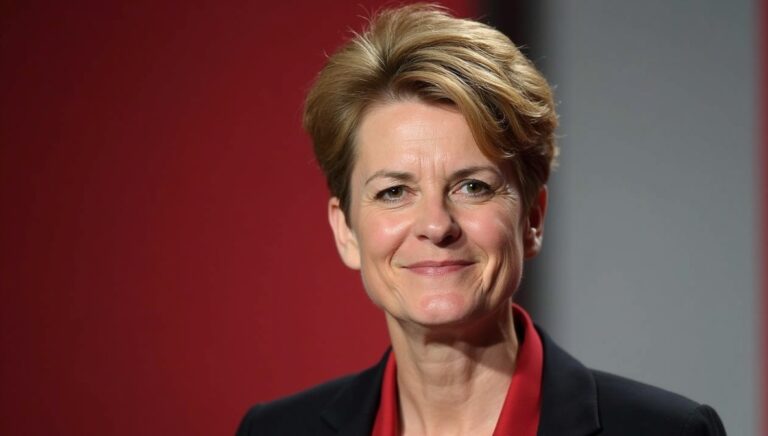Introduction
Yvette Cooper is one of the most prominent and respected figures in British politics. A senior Labour Party MP, former Cabinet minister, and influential voice on issues ranging from home affairs to social justice, Cooper has spent decades shaping policy and advocating for progressive change. Known for her sharp intellect, principled stance, and dedication to public service, she remains a key player in UK politics.
Early Life and Education
Born on March 20, 1969, in Inverness, Scotland, Yvette Cooper grew up in a politically engaged family. Her father was a trade unionist, which influenced her early interest in social justice. She attended:
- Eggar’s Comprehensive School in Hampshire
- Balliol College, Oxford, where she studied Philosophy, Politics, and Economics (PPE)
- Harvard University as a Kennedy Scholar
Her academic background laid the foundation for her analytical approach to policy-making.
Political Career
Early Political Roles
Cooper entered politics as a special advisor to then-Shadow Chancellor Harriet Harman and later worked under Labour Prime Minister Tony Blair. Yvette Cooper She was elected as the MP for Pontefract and Castleford (later Normanton, Pontefract & Castleford) in 1997, a seat she has held ever since.
Ministerial Career
Under Gordon Brown’s government, Cooper held several key roles:
- Minister for Housing & Planning (2005-2007) – Expanded affordable housing initiatives.
- Chief Secretary to the Treasury (2008-2009) – Played a crucial role during the financial crisis.
- Secretary of State for Work & Pensions (2009-2010) – Reformed welfare policies.
Shadow Cabinet & Leadership Roles
After Labour’s 2010 defeat, Cooper served in Ed Miliband’s Shadow Cabinet as:
- Shadow Home Secretary (2011-2015) – Challenged government policies on policing and immigration.
- Shadow Foreign Secretary (2015) – Advocated for a stronger internationalist approach.
In 2015, she ran for Labour leader but lost to Jeremy Corbyn. Yvette Cooper Despite this, she remained a vocal critic of Brexit and a strong advocate for workers’ rights and social equality.
Recent Work & Influence
Since Keir Starmer became Labour leader, Cooper has been a leading figure in shaping the party’s policies. As Chair of the Home Affairs Select Committee (2016-2023), she scrutinized government actions on:
- Policing & Crime – Pushed for reforms in police accountability.
- Immigration & Asylum – Criticized the Rwanda deportation scheme.
- Domestic Abuse Laws – Championed the Domestic Abuse Act (2021).
In 2023, she returned to the Shadow Cabinet as Shadow Home Secretary, positioning herself as a key figure in Labour’s push for government.
Key Political Stances
- Economic Equality – Supports higher minimum wages and stronger workers’ rights.
- Social Justice – Advocates for better housing, healthcare, and education funding.
- Pro-EU Stance – Criticized Brexit’s economic impact but now focuses on improving UK-EU relations.
- Law & Order – Pushes for police reform while ensuring public safety.
Personal Life
Cooper is married to Ed Balls, former Shadow Chancellor and now a TV personality. They have three children and are known as one of Westminster’s most influential political couples.
Legacy & Future Prospects
With Labour leading in polls ahead of the next general election, Cooper could become Home Secretary if Labour wins. Her experience, policy depth, and commitment to fairness make her a vital figure in British politics.
Conclusion
Yvette Cooper is a formidable force in UK politics, combining intellect, experience, and a deep commitment to social justice. Whether in government or opposition, she has consistently fought for progressive policies that benefit working families. As Labour eyes a return to power, Cooper’s leadership will be crucial in shaping Britain’s future.


